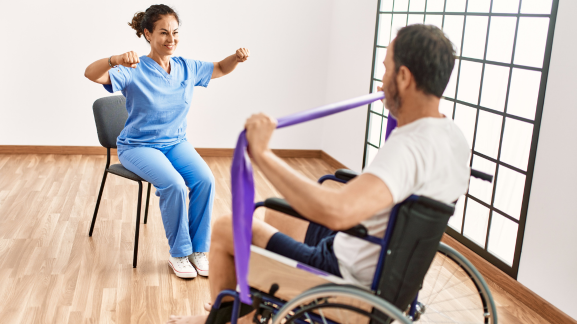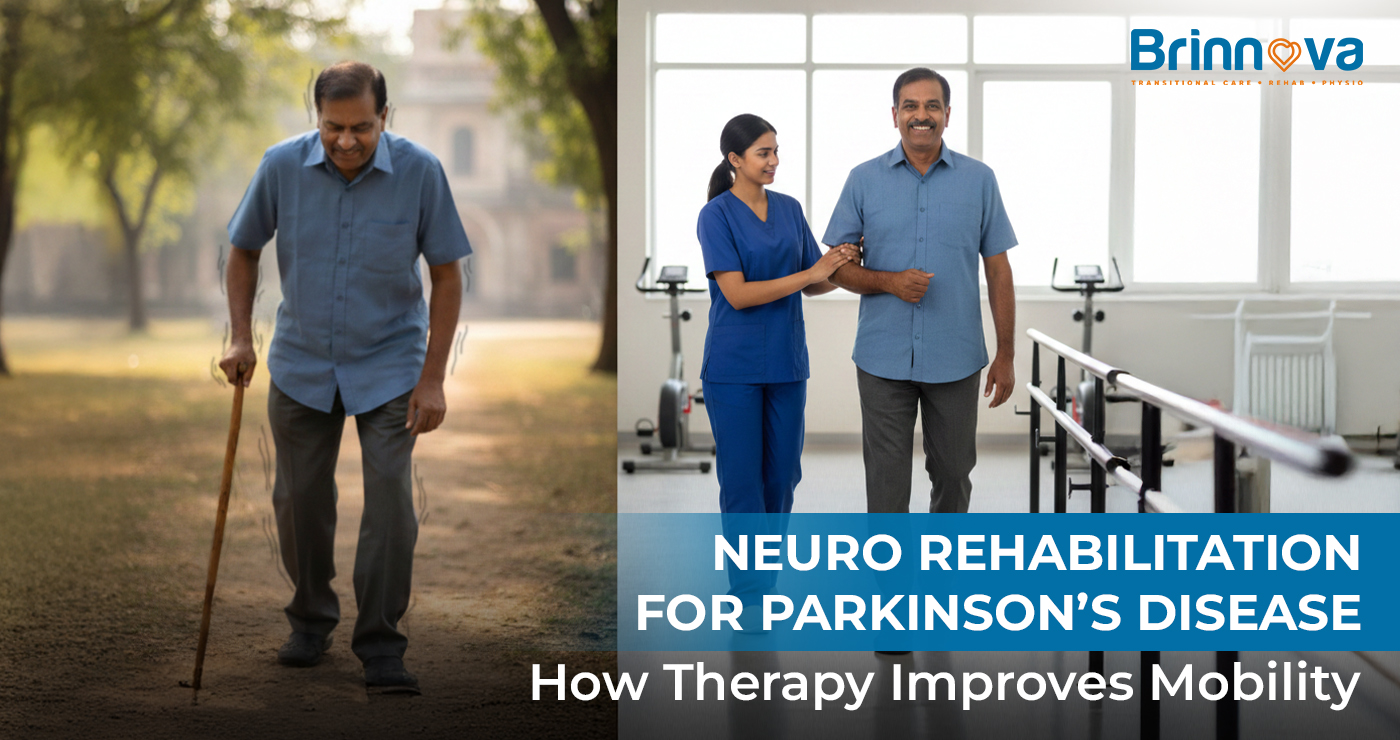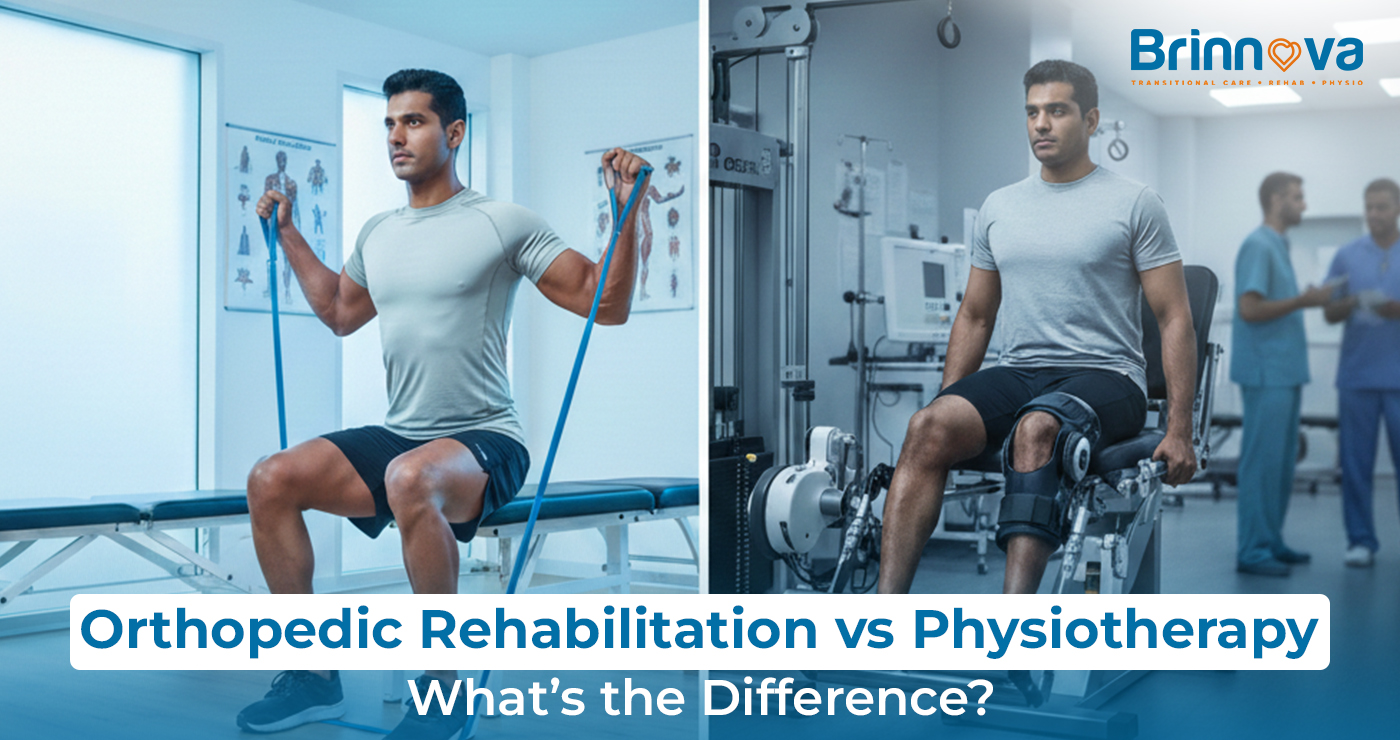How Does Physiotherapy Empower Paralysis Patients to Regain Movement?
Therapy focused on muscle movement is important for those whose muscles have been paralysed. An injury, disease, or neurological problem can create paralysis, which can seriously affect a patient’s physical and emotional health. When someone is paralysed, physiotherapy for paralysis improves movement as well as helps resolve related mental health problems. By choosing special exercise for paralysis patients and creating personal care plans, physiotherapy tries to re-establish independence.
What Is Paralysis and How Does It Affect the Body?
Paralysis is defined as the inability to use muscles because of damage to the nervous system in some area. It can appear because of injuries to the spinal cord, strokes or conditions including multiple sclerosis and cerebral palsy. Some people with paralysis lose a part of their movement, while others become unable to move at all.
- Physical Impact: How bad it is and where it occurs can cause paralysis in one limb only, many limbs, or throughout the whole body.
- Emotional Impact: Most people who experience paralysis feel very upset, angry, and like they need help. Processing these feelings plays an important part in rehab.
How Does Physiotherapy Aid in Regaining Movement?
For patients with paralysis, physiotherapy plays a key part in helping them to move again and build muscle power. Physiotherapy aims to encourage muscle contractions, build muscle strength, and establish a good connection between the muscles and nervous system. Physiotherapists develop unique exercise for paralysed people, taking into account what they need to encourage independent movement.
Why Physiotherapy for Paralysis Patients is Important:
- Improved Muscle Strength: Through physiotherapy, strength and endurance increase in all of your muscles, which improves your overall movement.
- Better Movement: Building muscle strength and coordination helps patients recover movement and do things they need to do.
- Must-Have Exercises: By concentrating on exercises that help the muscles and nervous system work together, you are able to restore spontaneous movement.
How Does a Multidisciplinary Approach Improve Recovery?
While physiotherapy for paralysis is crucial, a multidisciplinary approach often yields the best results. Collaborating with professionals such as occupational therapists, speech therapists, and psychologists ensures that all aspects of a patient's recovery are addressed. This holistic approach supports the physical, emotional, and mental well-being of the patient, accelerating the overall recovery process.
Benefits of a Multidisciplinary Approach:
- Occupational Therapy: Helps patients regain independence in daily activities, improving their quality of life.
- Speech Therapy: Essential for patients who experience difficulty with speech due to paralysis.
- Psychological Support: Provides emotional support to help patients cope with the mental and emotional challenges of living with paralysis.
Is physiotherapy able to help someone become more flexible and have better movement?
Losing mobility due to stiff joints makes it tough for many paralysis patients. Using physical therapy for paralysis, doctors often tell patients to exercise to improve their flexibility and maintain their ability to move. These exercises help to prevent stiffness and greatly improve how you move.
- Flexibility Exercises: Trying to lengthen your muscles will keep them from staying stiff.
- Range of Motion: By working on joint exercises, patients can improve their bending and ease their movements.
- Prevention of Stiffness: Every day exercise and stretching can prevent the loss of flexibility in your joints that makes you move less easily.
What Is Neuromuscular Re-Education and How Does It Help?
A physiotherapist uses techniques to retrain the nervous system to help patients move their bodies voluntarily following paralysis. The strategy helps link the brain, nerves and muscles in a way that patients can regain a degree of muscle strength lost from paralysis.
- Relearning Muscle Control: By doing certain physiotherapy workouts, paralysed people can recover muscle movement.
- Sensory Feedback: Sometimes, physiotherapists choose therapies targeted at the senses to support better muscle functionality while recovering.
Why is Physiotherapy Important for Long-Term Mobility?
Long-term recovery from paralysis requires ongoing physiotherapy. Regular physiotherapy for paralysis exercises is vital to maintaining muscle strength and flexibility, preventing further complications, and supporting long-term mobility. Continuing physiotherapy helps in:
- Maintaining Muscle Function: Preventing muscle atrophy and loss of function over time.
- Promoting Long-Term Mobility: Ensuring patients can move independently and perform daily activities.
- Preventing Secondary Complications: Regular physiotherapy prevents the development of pressure sores, blood clots, and other complications usually related to paralysis.
Brinnova Care: Helping People Recover with Physiotherapy
Despite how challenging recovery for paralysis patients may be, physiotherapy for paralysis helps them on their path to movement, strength, and regaining their independence. Specific exercise for paralysis patients, selected treatments, and neuromuscular re-education help physiotherapy to improve both the mind and body.
We understand at Brinnova Care how important it is to give rehabilitation care that is tailored to each person. Our experts will work with you to create a plan made just for you, helping you get stronger, move better, and be more independent. Through a combination of advanced techniques and compassionate care, we support you every step of the way on your recovery journey.




